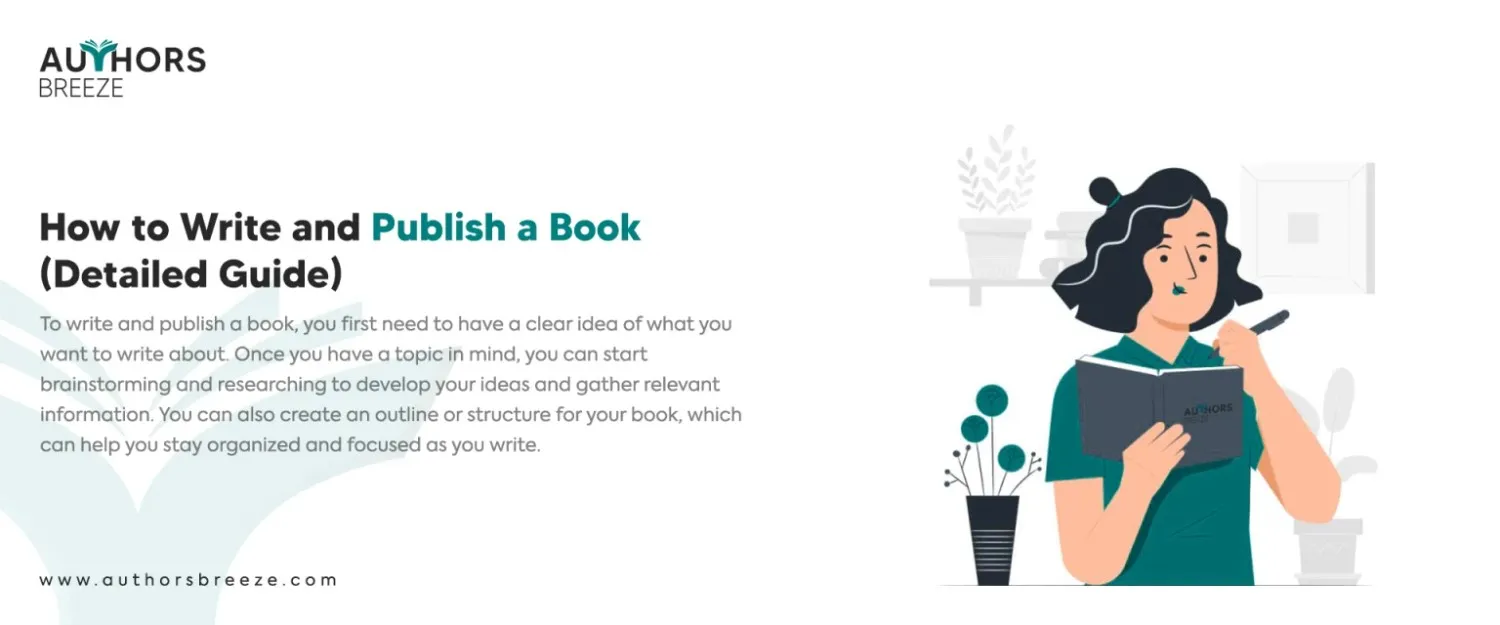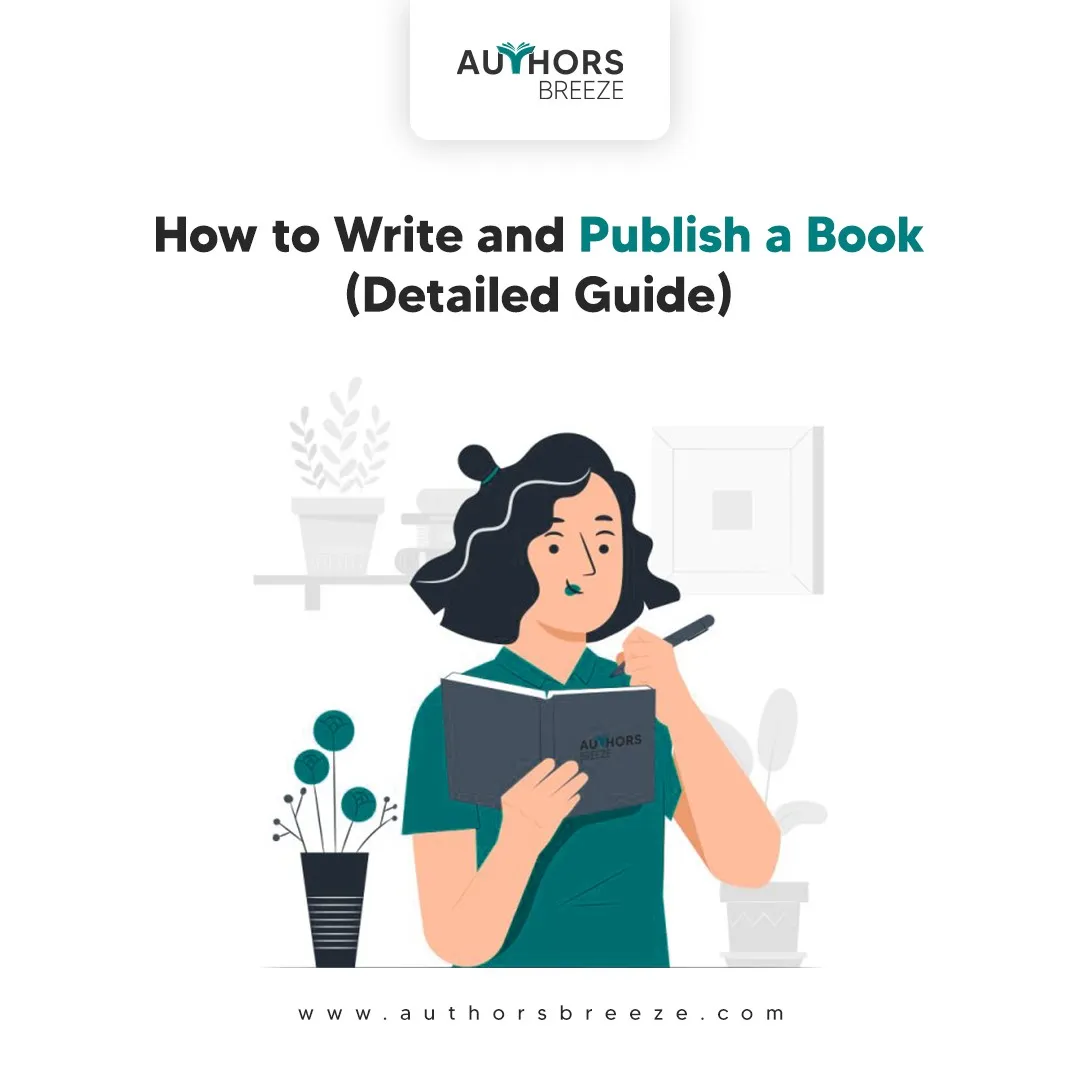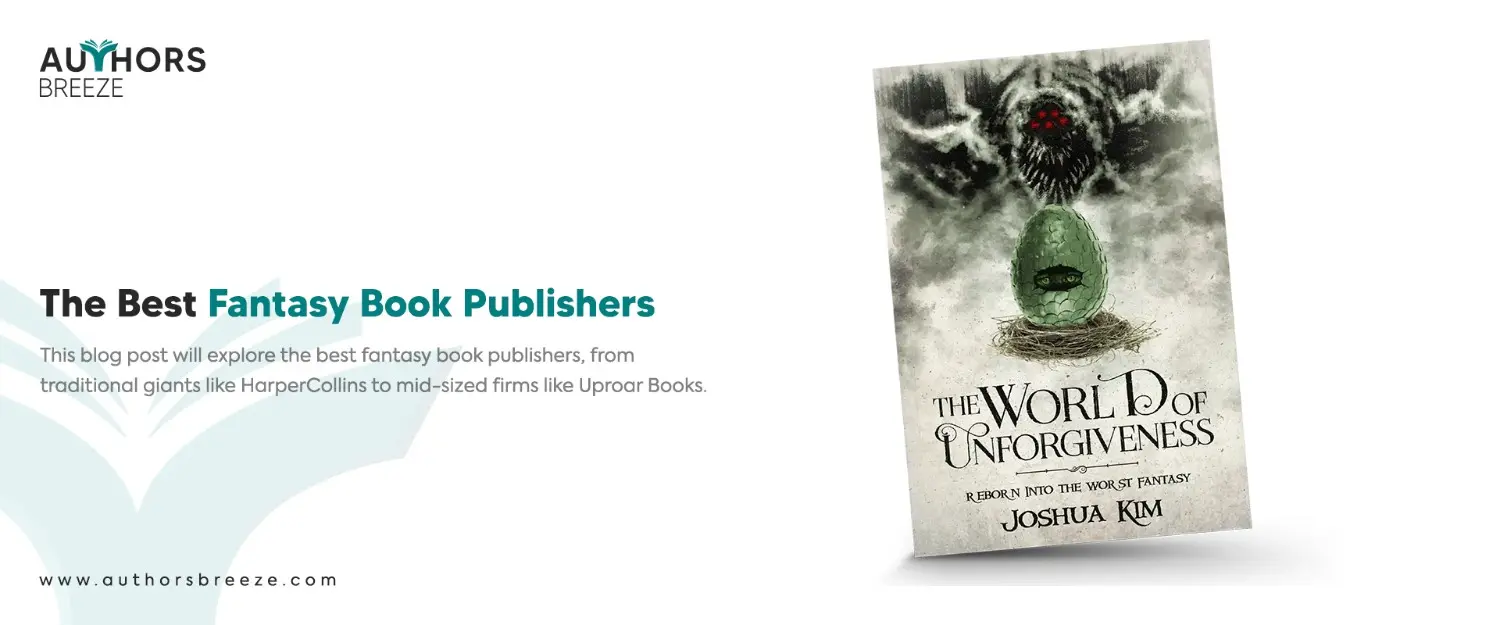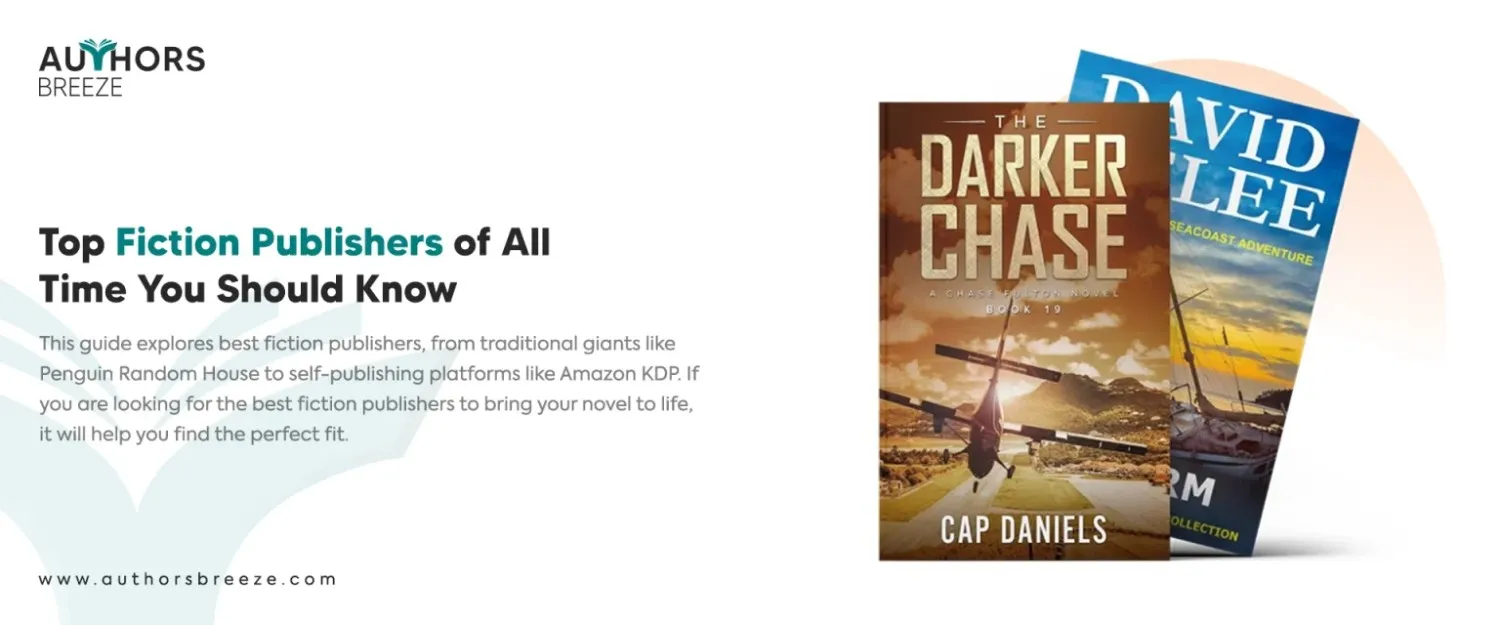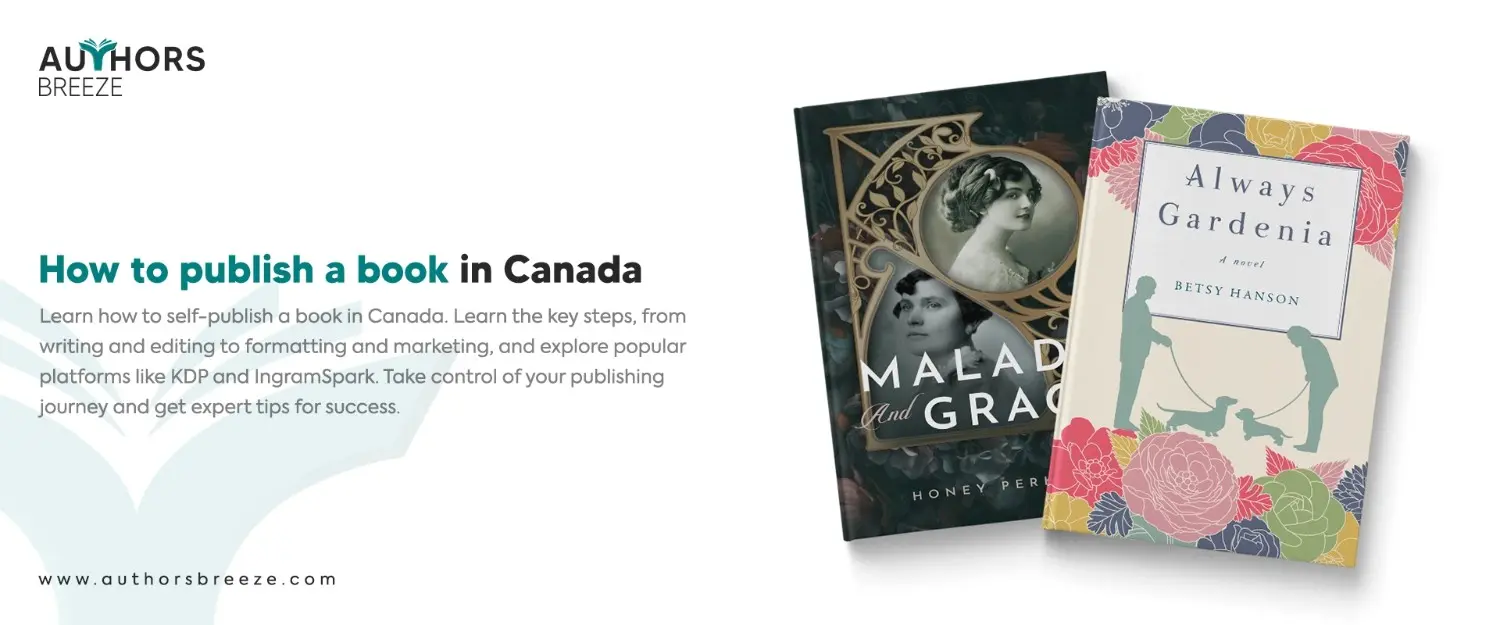Don’t Have Time to Read? Listen to this Article Instead!
A significant achievement is to write and publish a book. It can bring personal fulfillment and professional recognition. Books have the power to entertain, inform, and inspire readers, and authors have the opportunity to share their unique perspectives with the world.
It involves several stages to write and publish a book. Moreover, every step requires creativity, discipline, and perseverance. Today, we will look at how you can write and publish a book in 2025. In addition, we will provide practical tips and insights to help aspiring authors navigate the complex process of book creation and publication. Reading this guide will provide valuable information and resources to help you succeed and turn your writing dreams into reality.
Pre-Writing Stage
The pre-writing stage is an essential part of the book-writing process. You should take the time to plan and prepare before you begin writing. It can save you time and frustration later on. Moreover, it will help you create and publish a book that resonates with your readers and achieves your literary goals.
Identify Your Target Audience
The first crucial step when you write and publish a book is to identify the audience you will be targeting. Your target audience will influence every aspect of your book, from its content and style to its marketing and promotion.
To identify your target market, you should consider factors such as age, gender, interests, and reading preferences. You should also think about the genre and category of your book. Also how it fits into the broader literary landscape. Moreover, conduct market research and gather feedback from beta readers. It can also be helpful in identifying your target audience.
Define Your Writing Style and Tone
Another critical aspect of the pre-writing stage is to pick the writing style and tone in which you will be writing your book in. It should reflect the genre and subject matter of your book, as well as your personal voice and perspective. You should consider factors such as the level of formality or informality, the use of humor or wit, and the overall mood or atmosphere you want to create.
Experiment with different styles and techniques. It can help you find your unique voice. Moreover, it will help you develop a writing style that resonates with your readers. If you want to learn more about writing styles, cast an eye over our guide on the 4 main styles of writing styles. It will also help you choose the one you need.
Set Realistic Writing Goals
It is essential for you to stay motivated and focused during the writing process. This only can happen when you set realistic goals. You should consider factors such as your daily writing schedule, your target word count, and your deadline for completing your manuscript. It’s essential to take into account your other commitments and responsibilities and to track your progress regularly. Moreover, celebrating small milestones along the way. It will surely help you stay motivated and committed to your writing goals.
Outline Your Book’s Content and Structure
Before you start writing your manuscript, outline your book’s content and structure. Your outline should provide a clear and detailed roadmap of your book’s plot, characters, themes, and pacing. It should also include an overview of each chapter and scene, as well as any research or background material you need to have.
Your outline can help you stay organized and focused as you write. Moreover, it can also help you identify any gaps or inconsistencies in your story. It is vital to be flexible and willing to make changes to your outline as you write and revise your manuscript.
The Writing Stage
The writing stage is a critical component of the book writing process. It is the step where you can produce a well-crafted and engaging manuscript that resonates with your readers.
Techniques for Effective Writing
Effective writing requires discipline, focus, and creativity. There are several techniques you can use to improve your writing skills and produce engaging and well-crafted prose. Some effective methods include:
Freewriting
It involves writing continuously without worrying about grammar, spelling, or punctuation. The goal is to let your ideas flow freely without censoring yourself.
Mind Mapping
Mind mapping is a brainstorming technique. It can help you organize your ideas and plot your story. It involves creating a visual diagram that shows the relationship between different concepts and themes.
Outlining
Outlining involves creating a detailed plan of your book’s content and structure. It can help you stay organized and focused. Moreover, it also enables you to identify any plot holes or inconsistencies in your story.
Set Writing Goals
Setting specific and achievable writing goals can help you stay motivated and focused. You can set goals for daily word count, weekly or monthly milestones, or overall completion of your manuscript.
How to Overcome Writer’s Block?
Writer’s block is a common challenge for many writers. It is caused by a variety of factors, such as lack of inspiration, self-doubt, or feeling overwhelmed by the writing process. Some strategies for overcoming writer’s block include:
Freewriting
Freewriting can help you generate new ideas and overcome writer’s block by allowing you to write without judgment or criticism.
Change Your Writing Environment
Changing your writing environment can help you break out of your routine and stimulate your creativity. You can try writing in a different location, such as a coffee shop or library.
Take a Break
Taking a break from writing can help you recharge and come back to your work with fresh eyes. You can take a walk, do some exercise, or engage in other activities that help you relax and clear your mind.
Revision and Editing Strategies
Revision and manuscript editing are essential components of the writing process. They involve reviewing and refining your manuscript to improve its clarity, coherence, and overall effectiveness. Some strategies for effective revision and editing include:
Give Yourself Time
It’s important to give yourself time between writing and revising. It allows you to come back to your work with a fresh perspective and identify areas that need improvement.
Seek Feedback
Getting feedback from beta readers or a writing group can help you identify areas of weakness and make improvements to your manuscript.
If you don’t know about beta readers, what they do, and how you can find them. Check out our article: What are beta readers & how can authors find them?
Read Out Loud
Reading your work out loud can help you identify awkward phrasing, errors, and inconsistencies in your writing.
How to Maintain Motivation While Writing A Book?
Maintaining motivation is key to staying on track with your writing goals. Some tips that can help you stay motivated include:
Celebrate Small Victories
Celebrating small milestones along the way can help you stay motivated and committed to your writing goals.
Create a Routine
Creating a routine can help you establish a writing habit and make writing a regular part of your day.
Join a Writing Group
Joining a writing group can provide you with support and motivation, as well as opportunities for feedback and critique.
The Publishing Stage
Once you have completed the writing process, the next step is to publish your book. The stage where you publish a book can be divided into two main options:
1- Traditional Publishing
2- Self-Publishing.
Each option has its own advantages and disadvantages. Therefore, it’s necessary to choose the one that’s right for you. With careful planning and execution, you can successfully publish a book and share your story with the world.
Traditional Publishing vs Self-Publishing
Traditional publishing involves submitting your manuscript to a publishing house. They will handle the editing, formatting, cover design, and distribution of your book. In exchange, book publishers will take a percentage of the book’s profits. Traditional publishing can be a lengthy and competitive process. However, it can also offer the benefits of an established brand and a more comprehensive distribution network.
Self-publishing, on the other hand, allows you to retain complete control over your book’s content, design, and distribution. You can choose to work with a self-publishing platform such as Amazon’s Kindle Direct Publishing or IngramSpark. They will handle the technical aspects of publishing, or you can take care of everything yourself. Self-publishing can be faster and more flexible than traditional publishing. However, it requires more work and investment on your part.
How To Choose The Right Option To Publish a Book?
When the time comes to choose between traditional publishing and self-publishing, it’s essential to consider your goals, resources, and timeline. If you’re looking for broader distribution and recognition, traditional publishing may be a better option. On the other hand, if you want to maintain complete creative control and a faster timeline, self-publishing can be a better fit.
You can read our detailed guide on how to find a book publisher in 2025 if you want to make it easy for you to find and choose the publisher to publish a book. With our guide, you can make increase your chances of getting your book published.
Create a Book Cover and Format The Interior
Regardless of which publishing option you choose, you will need to design an eye-catching book cover and format the interior of your book. A professional book cover design is essential for attracting potential readers, while a well-formatted interior can improve the readability of your book.
If you’re working with a traditional publisher, they will handle these aspects for you. If you’re self-publishing, you can hire a professional designer or use online tools to create your cover and format your book interior.
Set The Right Price For Your Book
Setting the right price for your book can be confusing. You want to ensure that your book is priced competitively but also that it reflects the value of your work.
- If you’re working with a traditional publisher, they will typically set the price of your book.
- If you’re self-publishing, you can research the prices of similar books in your genre and market and use that as a guide.
You can also experiment with different price points and promotions to find the optimal pricing strategy for your book.
Marketing and Promotion
Once your book is published, the next step is to market and promote it to reach your target audience and gain visibility in the market. Marketing and promotion are crucial to the success of your book, and they require careful planning and execution. Let’s look at how you can market your book and increase sales.
Build Your Author Platform
Building your author platform involves establishing your online presence and cultivating a following of readers who are interested in your work. It can include creating an author website, social media accounts, and a mailing list. Your author platform can help you connect with readers and promote your book to a broader audience. Moreover, it’s crucial to maintain consistency across all of your online channels and engage with your followers regularly.
Effective Marketing Strategies
There are a variety of book marketing strategies you can use to promote your book, including:
Book Reviews
Reach out to book bloggers and reviewers who are interested in your genre and offer them a copy of your book in exchange for an honest review.
Social Media Advertising
Use targeted advertising on social media platforms like Facebook and Instagram to reach your ideal reader.
Book Clubs
Reach out to book clubs and offer to do a virtual or in-person book reading and discussion.
Book Signings and Events
Plan book signings and events in your local area to promote your book and connect with readers.
Create a Buzz Around Your Book Launch
Creating a buzz around your book launch can help generate excitement and interest in your book. Some ways to do this include:
Countdowns and Teasers
Use social media to create anticipation for your book launch by sharing countdowns and teasers.
Pre-Orders
Offer pre-orders for your book to incentivize readers to buy it before it’s officially released.
Launch Party
Plan a launch party to celebrate your book’s release and invite family, friends, and supporters.
Maintain Reader Engagement
Reader engagement plays a crucial part in successfully promoting and selling your book. It’s not enough to simply publish a book and hope that readers will find it on their own. You need to actively engage with your readers and build a community around your work.
Maintaining reader engagement is an ongoing process that requires a willingness to connect with your readers on a personal level. It helps you build a strong community of readers who are passionate about your work and eager to support you in your future projects. It is also vital for building a loyal following and generating positive word-of-mouth about your book. Some ways to do this include:
Social Media Engagement
Engage with your followers on social media by responding to comments and messages. Share updates about your writing process, and offer behind-the-scenes glimpses.
Interact With Your Readers
Connect with your readers through social media, email, or a website. Respond to their comments and feedback, and show them that you value their opinions.
Offer Exclusive Content
Offer your readers exclusive content such as bonus chapters, deleted scenes, or author notes. It can help to keep them engaged and interested in your work.
Host Events
Host book signings, readings, or other events to connect with your readers in person. It can help to build a strong relationship with your readers and keep them engaged with your work.
Encourage Reviews
Encourage your readers to leave reviews of your book on sites like Amazon, Goodreads, or Barnes & Noble. Positive reviews can help to attract new readers and build buzz around your book.
Build a Newsletter
Build an email list and send out regular newsletters to your readers. It can be a great way to keep them updated on your work and offer exclusive content and promotions.
Collaborate With Other Authors
Collaborate with other authors in your genre to cross-promote each other’s work. It can help to expand your reach and attract new readers.
Listen to Feedback
Listen to your readers’ feedback and use it to improve your work. It can help to build a loyal fan base and keep readers engaged with your future projects.
Legal and Financial Considerations
The legal and financial considerations when you publish a book is an integral part of the process. By taking the time to research and consult with professionals as needed, you can ensure that you’re protecting your work and maximizing your earning potential as an author.
If you want to publish a book, consider the legal and financial implications of your work. Let’s explore some key legal and financial requirements to keep in mind.
Copyright Laws and Protection
Copyright laws protect the original work of authors, including books, and give them exclusive rights to reproduce and distribute their work. As an author, it’s important to understand copyright laws and how to protect your work from infringement. This can include registering your copyright with the U.S. Copyright Office and including a copyright notice in your book.
Tax Implications of Book Sales
When you sell your book, you’ll need to consider the tax implications of your earnings. Depending on where you live and the amount of income you earn from your book sales, you may need to pay income taxes or sales taxes. You can consult with a tax professional to understand your obligations and keep accurate records of your earnings and expenses.
Distribution and Royalty Rates
If you choose to self-publish a book, you’ll need to consider how to distribute it and set a price that reflects the value of your work. Many self-publishing platforms, such as Amazon’s Kindle Direct Publishing, offer royalty rates based on the cost of your book and the number of copies sold. It’s essential to research and compare distribution options to find the best fit for your book.
If you choose to pursue traditional publishing, you’ll need to understand how royalties are calculated and negotiate a fair deal with your publisher. Royalty rates can vary widely depending on the publisher and the type of book, so it’s necessary to do your research and work with a literary agent or lawyer to negotiate the best deal for you.
Hiring an Agent or Lawyer, If Necessary
If you’re unsure about the legal or financial aspects of publishing your book, it may be helpful to hire a literary agent or lawyer who specializes in publishing law. A literary agent can help you navigate the publishing industry, negotiate contracts, and connect with publishers, while a publishing lawyer can advise you on legal matters such as copyright infringement and contract disputes.
If you don’t know how to find a literary agent to help you publish a book. You can read our blog on how to get a literary agent for your book. In our detailed guide, you will find all the necessary info you should know to hire a literary agent.
Conclusion
Hopefully, you now have a better know-how of the steps to write and publish a book. You have to stay committed to your craft and believe in yourself and your work if you want to successfully publish a book. Remember that writing is a long and hard-working process. Therefore, it is okay to make mistakes and learn from them. Don’t be afraid to take risks and try new things. In addition, don’t give up on your dreams of becoming a published author.
As you embark on your writing and publishing journey, it is crucial to stay organized, stay focused, and stay connected to the writing community. Join writing groups, and attend workshops & conferences. Moreover, seek out feedback and support from fellow writers. Be patient, be persistent, and don’t be afraid to ask for help when you need it. With dedication, hard work, and a little bit of luck, you can make your dreams of writing and publishing a book a reality.
It is very easy to publish a book when you have the proper guidance. You can get in touch with Authors Breeze to help you write and publish a book. We have the best ghostwriters that can write your book efficiently without taking credit. Moreover, we can also help you publish your book and promote it to reach the right audience.

